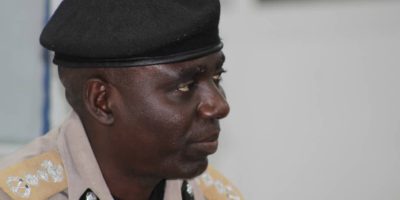By Dawda Faye
Justice Kuejubola of the Kanifing High Court quashed the judgment of the Kombo East District Tribunal in favour of Bano Jawo, who filed an appeal against the said judgment. In her judgment, the presiding judge said that the District Tribunal, having presided singly by the president of the tribunal, could not be said to have been properly constituted, and as such, lacked jurisdiction to adjudicate, thus rendering all proceedings a nullity.
The trial at the Kombo East District Tribunal was between Bano Jawo and Babucarr Gibba and Ba Omar Sambou. The appellant, Bano Jawo, was represented by Lawyer Borry Touray at the Kanifing High Court, and the Kombo East District Tribunal and the Attorney General were among the respondents.
The presiding judge told the court that it was worthy to note that the respondents, despite being served with the application and processes filed by the appellant, failed, refused and neglected to file any affidavit in opposition to that of the applicant.
She further stated that Counsel Touray, who was representing the appellant, however, on the 1st of February, 2017, filed and served his brief of argument which was adopted before the court on the 8th of November, 2018.
Counsel Touray’s argument was whether the tribunal was properly constituted in the first place, whether there was a proper trial and whether the applicant’s constitutionally guaranteed right to fair hearing was not violated, noting that the proceedings of the District Tribunal were a nullity and should be set aside and the judgment quashed.
Since the respondents failed and neglected to file any counter affidavit, the facts in support of the application of the appellant were deemed admitted. “What is admitted needs no further proof,” said the judge.
Justice Kuejubola went on to say that there was neitherdispute on the facts averred by the appellant nor denied by the respondents. She adduced that it was clearly seen from the copy of the judgment of the Kombo East District Tribunal the suit before the tribunal was a civil one.
At this juncture, she referred to Rule 5 of the District Tribunal to support her judgment. She told the court that the judgment of the District Tribunal was signed by only the president of the tribunal. “It implies that the president sat alone without other panel members. Therefore the tribunal was not properly constituted, as it should have the required minimum of three members,” she declared.
The presiding judge disclosed that the District Tribunal, having presided singly by the president, could not be said to have been properly constituted, and as such, lacked jurisdiction to adjudicate, thus rendering all proceedings a nullity.
“The matter was clearly a civil suit, but the presiding chief gave it a criminal coloration when he went ahead to use the word ‘offences’ and proceeded to sentence the plaintiff (appellant) to one year, six months with hard labour without any option of a fine. In other words, a civil suit ended up as a criminal matter,” she told the court. She said further that there was no doubt that there was no proper trial at the District Tribunal. “If I may ask, was the action of the presiding chief a mistake or omission of the head or mind or misapplication of the law?” she wanted to know.
She went on to say that the presiding chief still awarded damages as compensation in favour of the plaintiff to the tune of D10,000 for loss incurred. “The appellant’s fundamental right which is guaranteed by the constitution was grossly violated, and there was no evidence led from the record that caused the award of damages to be ordered in favour of the plaintiff,” she stated.
The presiding judge added that the violation of the applicant’s constitutional right to fair hearing and respect on his human person and dignity was abundantly clear in the proceedings at the District Tribunal.



Ma sha Allah great and thanks for sharing